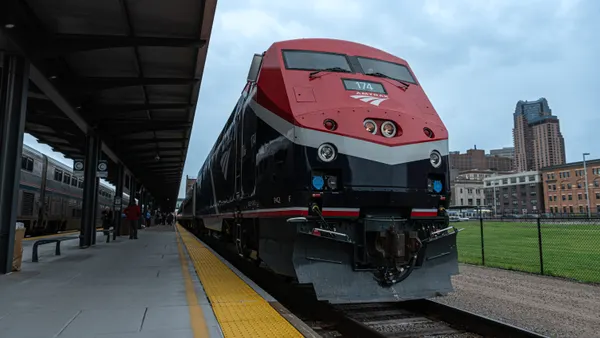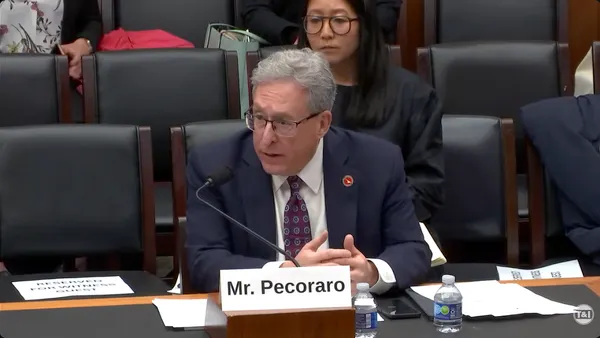Dive Brief:
- 74% of Americans want Congress to slightly or significantly increase spending for public transportation, according to a survey conducted by the Mineta Transportation Institute (MTI) for the American Public Transportation Association (APTA).
- Respondents approve of their tax dollars being used to create, expand and improve public transportation, with a collective 80% somewhat or strongly supporting that idea.
- 81% of respondents agree or strongly agree that public transportation is important to communities because it offers residents connections to resources including jobs, schools and medical facilities, and 80% agree or strongly agree that public transportation helps businesses flourish.
Dive Insight:
Despite such a large percentage of survey respondents indicating they would like to see more federal funding of public transit, the reality is that federal funding is at risk of reductions. President Trump's proposed budget and $1.5 trillion infrastructure plan both cut millions from mass transit and infrastructure projects. However, the president's budget merely serves as a guide for Congress; the congressional spending bill reversed some of those cuts and increased transit spending. Local communities are caught in between during such back-and-forth battles, and states and cities experience an increasing burden to foot the bill for transit.
Securing additional funding for public transportation could be a hard sell considering that transit ridership has dipped across the country. A recent analysis of data from the U.S. Department of Transportation’s National Transit Database indicates that national transit ridership in 2017 was the lowest since 2005. Bus ridership took a 5% hit, which is damaging because buses are the country's most used form of public transportation.
The new survey results are especially interesting considering the lower transit ridership numbers. It would seem that lower ridership would correlate to less support for federal transit funding, but that is not the case.
Another area of disparity between survey responses and actual behavior is reflected in the question about ride-share services. When asked, "Although ride-sharing apps like Uber and Lyft create new transportation options, public transportation remains an important option for daily commuters concerned with issues of cost and traffic," 75% of respondents agreed or strongly agreed. Interestingly, ride-sharing is largely considered one of the main contributors to the transit ridership decreases.
Although Congress currently favors additional transit spending, as do most of the residents who participated in the MTI survey, cities might experience trouble with securing greater funding going forward if the public transportation ridership numbers continue their downward trend. However, a case could be made that federal funding could improve cities' transit systems and reenergize the public, increase mass transit used and consequently reverse the current trend. The issue will likely remain a chicken-and-egg fight for the foreseeable future.












